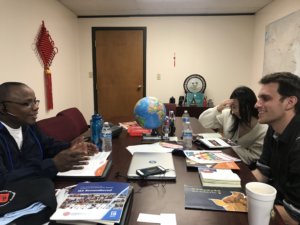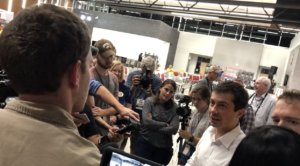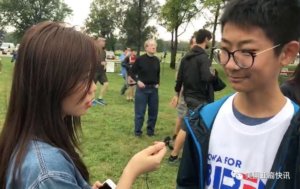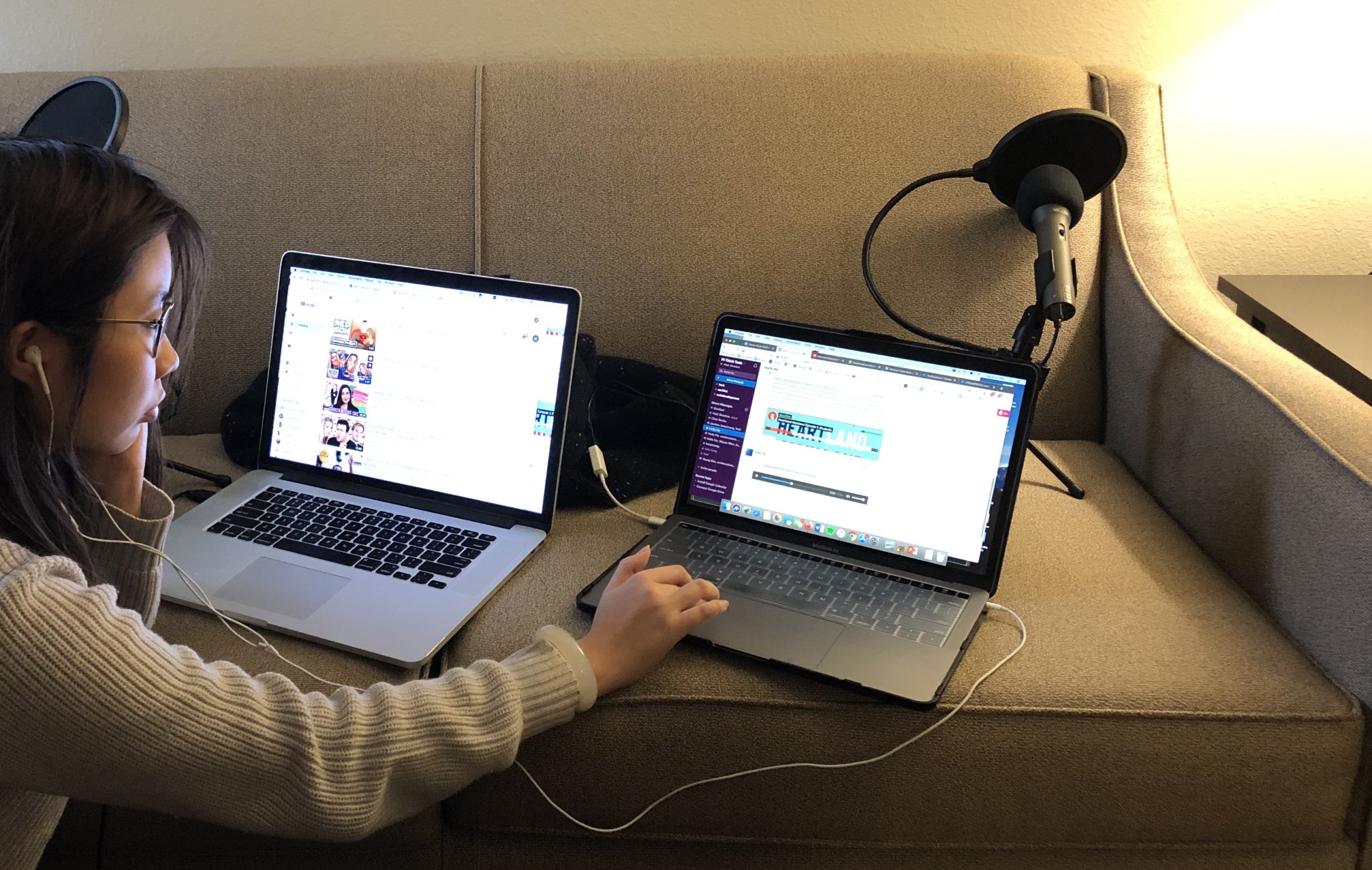
In the shadow of a trade war and in the middle of the Democratic presidential primary ahead of the 2020 general election, MacroPolo’s Holly He and Matt Sheehan traveled to Iowa to take the pulse of the US-China relationship. Intrigued by both Iowa’s history with China and the impact of their current connections, Sheehan and He met with ordinary people to explore different dimensions of the relationship—education, politics, agriculture, and manufacturing. To learn more about the genesis of the podcast and what they learned from the people they encountered and the places they visited, we spoke with the hosts.
Why was this an important story to tell?
Holly: As tensions between the US and China rise, we often read lofty think pieces about the bilateral relationship, but seldom do we have a chance to zoom in on the people who experience and bear the consequences of any changes in this relationship. On the other hand, when you think about think tank and podcast what comes to mind is usually experts talking on a panel, instead of stories of ordinary people.

What made you choose Iowa?
Matt: Iowa’s relationship with China is both typical and unique. It’s typical in that Iowa has become a microcosm of the way that China impacts states all across the country: when the number of Chinese students at American universities skyrockets, it also shoots up at places like the University of Iowa. When cheap Chinese imports hurt US manufacturers across the rustbelt, they hit factories in eastern Iowa just as hard. But the Hawkeye State and China are also tied together in unique ways. In 1985, a then low-level Chinese official named Xi Jinping came to Iowa to learn about corn processing and Midwest living. He would come back in 2012 as China’s next President. But despite that feel-good history, today Iowa is one of the states hit hardest by the US-China trade war. That’s because Iowa is a top exporter of soybeans and corn—two goods that have been caught in the crossfire of tariffs. On top of all that, you also have the Iowa Caucuses, arguably the most important political event leading up to the 2020 Presidential Election.
Since the podcast launched, have you received any feedback from the people you spoke with?
Holly: I think most of our interviewees listened to it and thought it was interesting. We got some shout outs from Kyle Munson, the ex-Iowa Columnist we profiled in the finale episode.
Why did you choose the people you interviewed?
Matt: We didn’t want to choose anyone who is known as an “expert” in a field, at least not as our main character. We looked for people who actually experienced the ground-level effects of geopolitical events—a student, a farmer, a business owner, a voter. For example, although we talked to the admission officer and international program directors about Chinese students’ experience, ultimately, the focal point of our episode on Chinese students is the students themselves: their stories with American roommates, their first impression of Iowa, and the difficulties they encountered regarding integration.

What surprised you most during your interviews and your time in Iowa?
Holly: Since I first came to the States in 2011, Chinese students have poured into American universities and high schools. Before that there weren’t many of us, and over the years it has really blown up. By the time I was in college, it became the new normal for Chinese middle-class families to send their kids abroad. Now, winds have shifted again, as they are being pushed back home by US-China tensions. I’m normally not an introspective person, so now that I’m no longer a “Chinese student,” it’s refreshing and surprising to take a step back and look at the issue as an outsider. I see so much of myself in the students I interviewed, and interacting with them caused me to reflect on the aspects of myself that I never thought about: how hard it is to integrate, to make friends, to make the decisions of staying and going. I think from my friends’ experiences and recent headlines, it will become harder and harder for Chinese students, especially with STEM majors, to come and study in the US. But a lot of it depends on this year’s Presidential Election.
Don’t miss it. Listen to Heartland Mainland: The Iowa China Podcast.



